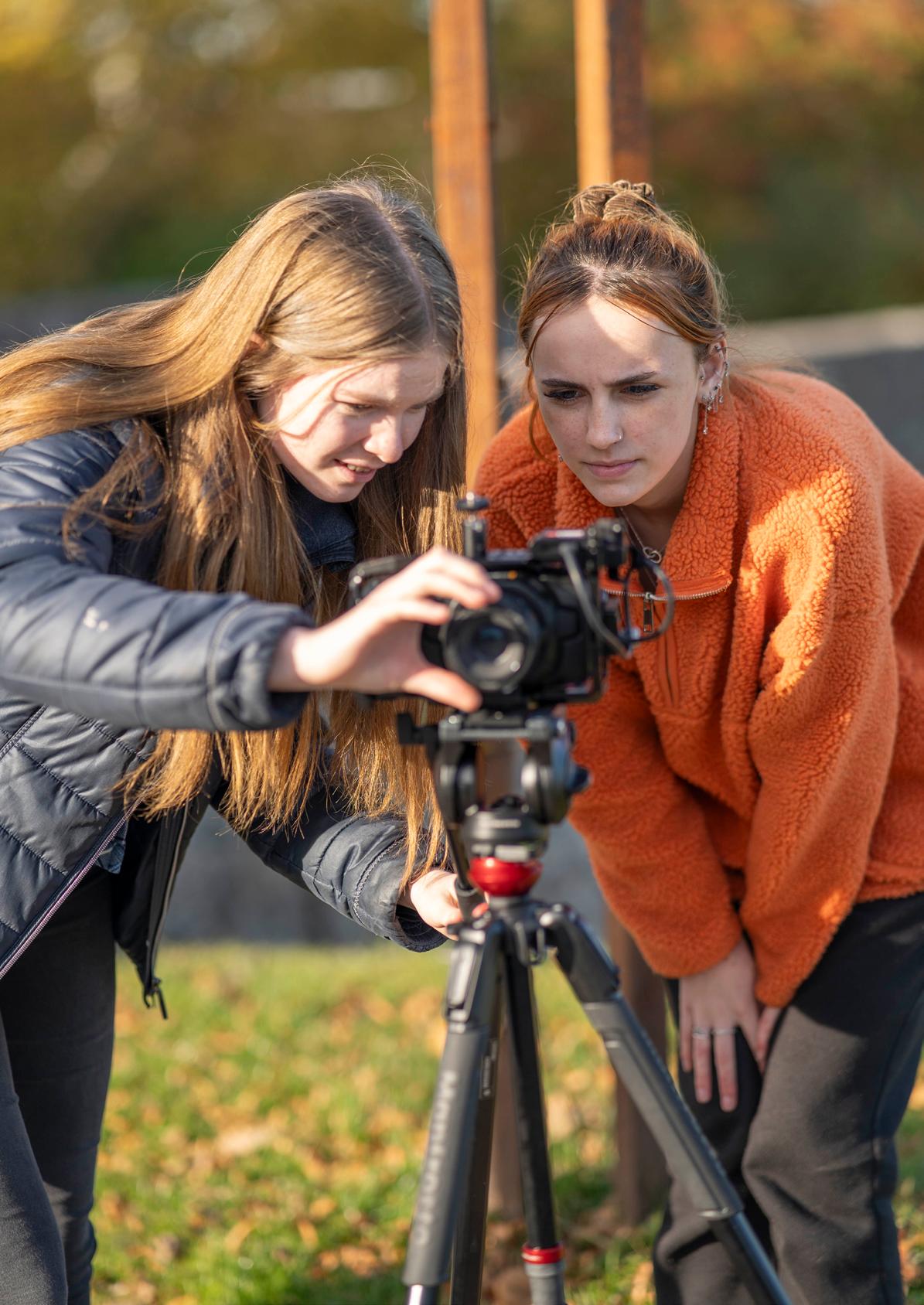




shmu’s CashBack NorthEast programme continues to support young people in Aberdeen and Aberdeenshire to overcome barriers and build positive futures, through three interconnected projects. Our Youth Media project works with 10 to 18-year-olds from 7 priority areas to explore identity, wellbeing, and community through creative media. Our Training Academy supports school leavers and young people who are unlikely to reach a positive destination without additional intervention. Engage works with young people who are justice experienced or at risk of offending, with a focus on breaking cycles of exclusion and risk-taking behaviour through creative, trauma-informed support.
This year, the programme has engaged 189 new participants, taking our cumulative total to 549, surpassing our three-year target. We also exceeded full programme targets in areas such as volunteering hours, improved relationships with school, and self-reported increases in confidence and wellbeing. Across all three projects, young people have made meaningful progress, building skills, forming peer networks, and improving their outlook and mental health.
Our case studies in this report highlight the programme’s deep and lasting impact. Liam, a long-term Youth Media participant, has progressed from isolation and low self-esteem to a degree in Media Studies and a leadership role within shmu. Lisa, a Training Academy participant, re-engaged with learning and completed a construction skills course, with plans to apply to college. Ben, supported through Engage, built structure and confidence after a justice referral and is now volunteering, rebuilding family relationships, and exploring future education in music.
While we’ve seen clear successes, challenges remain. We continue to experience difficulties evidencing reductions in antisocial behaviour - often due to underreporting - and
progression into employment remains a complex issue, particularly in the context of mental health challenges and limited local opportunities. We’ve responded by adapting qualifications, deepening partnership working, and refining our evaluation methods to better reflect participant progress and potential.
Organisationally, we have made significant strides. We opened a dedicated media studio in Torry to improve access for young people in the south of the city, expanded into Aberdeenshire, and strengthened our strategic partnerships across education, justice, and employability. Our communications work has helped amplify young people’s voices through campaigns such as Challenge Poverty Week and Mental Health Awareness Week, with growing engagement across social media channels.
Looking ahead, our Year 3 priorities focus on sustaining momentum, enhancing progression pathways, and embedding long-term impact. This includes expanding our Young Leader programme, strengthening postschool support, developing new school and regional partnerships, and deepening our involvement with justice and throughcare services. Environmental sustainability will also be embedded across our delivery, in line with our new Strategic Plan.
CashBack NorthEast is now well ahead of target in key outcome areas and has demonstrated the transformative potential of creative, relationship-based youth work. As we enter the final year of delivery, our focus is on building on this momentum - deepening our impact, strengthening progression pathways, and ensuring that the voices and experiences of young people remain at the heart of everything we do. With continued investment, collaboration, and belief in their potential, we can support this generation to thrive - and leave a legacy that lasts far beyond the lifetime of the programme.

“Without shmu, I wouldn’t be as far along in achieving my goals.”
Youth Media Participant
CashBack for Communities is the Scottish Government’s programme that repurposes money seized from the proceeds of crime into projects for young people facing disadvantage. Phase 6 of the programme runs from 1 April 2023 to 31 March 2026, with an increased overall programme budget of up to £20 million for 29 projects.
Station House Media Unit’s (shmu) CashBack NorthEast received £348,210.
CashBack NorthEast is funded to work with over 500 young people in Aberdeen and Aberdeenshire over three years. With a focus on creative approaches and media, the programme seeks to help young people overcome personal barriers and avoid anti-social behaviour and (re)offending.
The funding supports three projects:
Youth Media supports 10 to 18-year-olds from the priority areas of Aberdeen to participate in media-related activities. The project works with young people at risk of involvement in anti-social and offending behaviour and uses person-centred creative opportunities to support active participation across a range of media platforms, encouraging their personal development and progression.
Training Academy provides a coordinated package of support for summer and winter school leavers who have been identified as unlikely to achieve a positive destination. Offering support both in schools and at our base in Aberdeen, the programme re-engages those struggling in their final years at school and supports their transition into work, further education, or training. It also
works with young people who have already left school and require personalised, one-to-one support to begin their journey along the employability pipeline.
Engage is delivered in the community with young people who are justice experienced or face considerable personal challenges, with a focus on breaking the cycle of offending. Media is used as a tool for engagement, providing meaningful group activity and opportunities for ongoing volunteering. Our support service provides a wraparound, holistic and person-centred package to assist the journey away from offending and towards a more positive and stable life within our communities.
This report provides a general update on activities in the second year of our CashBack NorthEast programme, covering:
- An overview of participants and performance across our projects
- Updates on the three CashBack NorthEast projects (Youth Media, Training Academy, and Engage)
- Three case studies that illustrate each project’s delivery model and impact
- Organisational update
- Communications report
- A summary of how our programme is contributing to key Scottish Government policy areas
- Plans for Year 3 of the CashBack NorthEast programme















“If it hadn’t been for me coming to shmu and doing the radio training and the support I got, I would never have had the confidence to stand up in front of 40 people and speak about my mental health”
Engage Participant





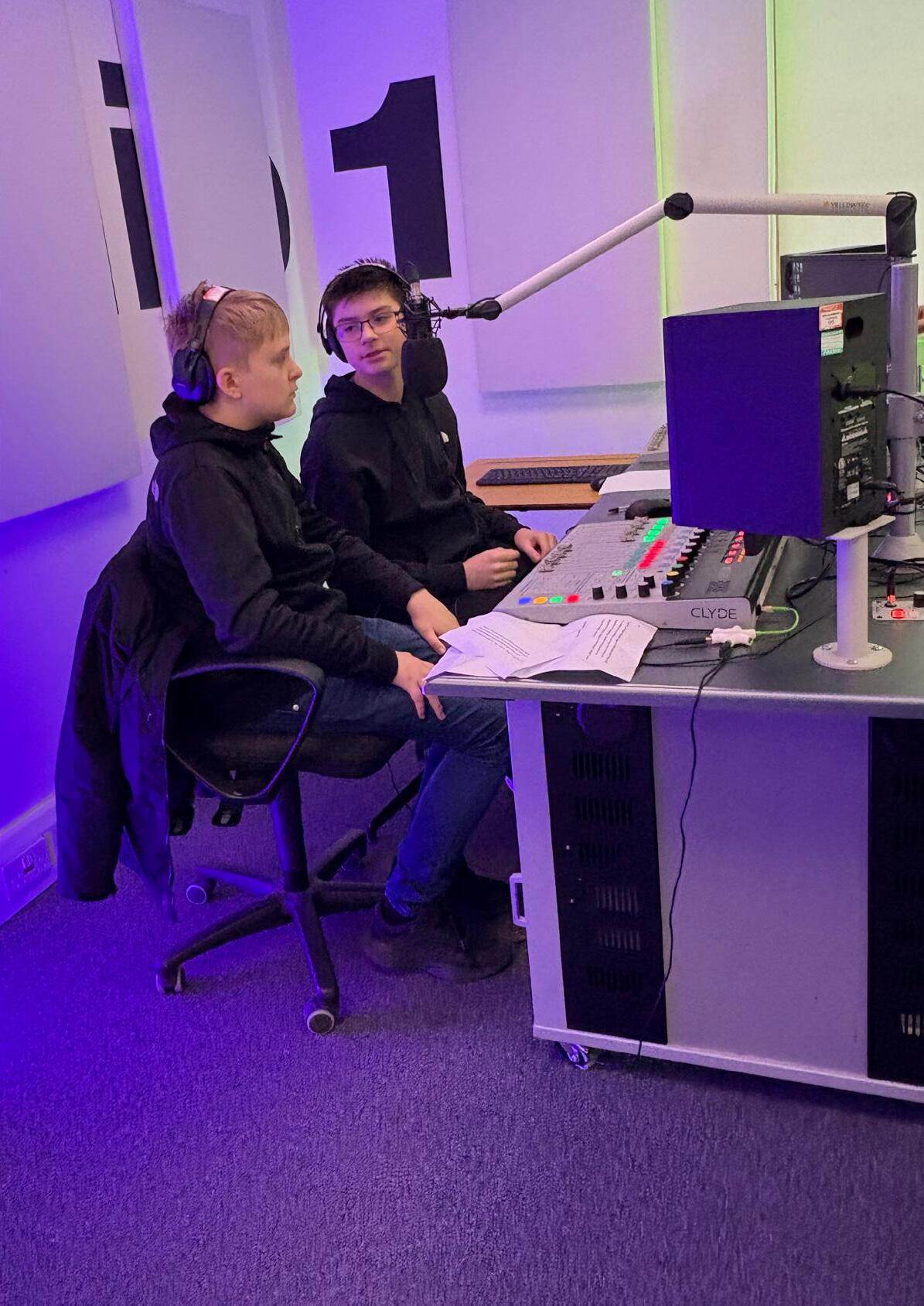
"The shmu programme has provided a safe place for young people to trial new experiences. shmu has a very relaxed atmosphere which has helped some of my young people feel comfortable and do things out with their comfort zone."
Teacher, St Machar Academy









Nonbinary
Not known


White - Scottish: 108
White - Other British: 21
White - Polish: 13
White - Other: 9
Indian - 1
Chinese - 3
Other Asian ethnicity - 2





African - African, African Scottish or African British - 2
African - Other African ethnicity - 10
Black - Black, Black Scottish or Black British - 2
Arab, Arab Scottish or Arab British - 2
Other ethnic group - 8






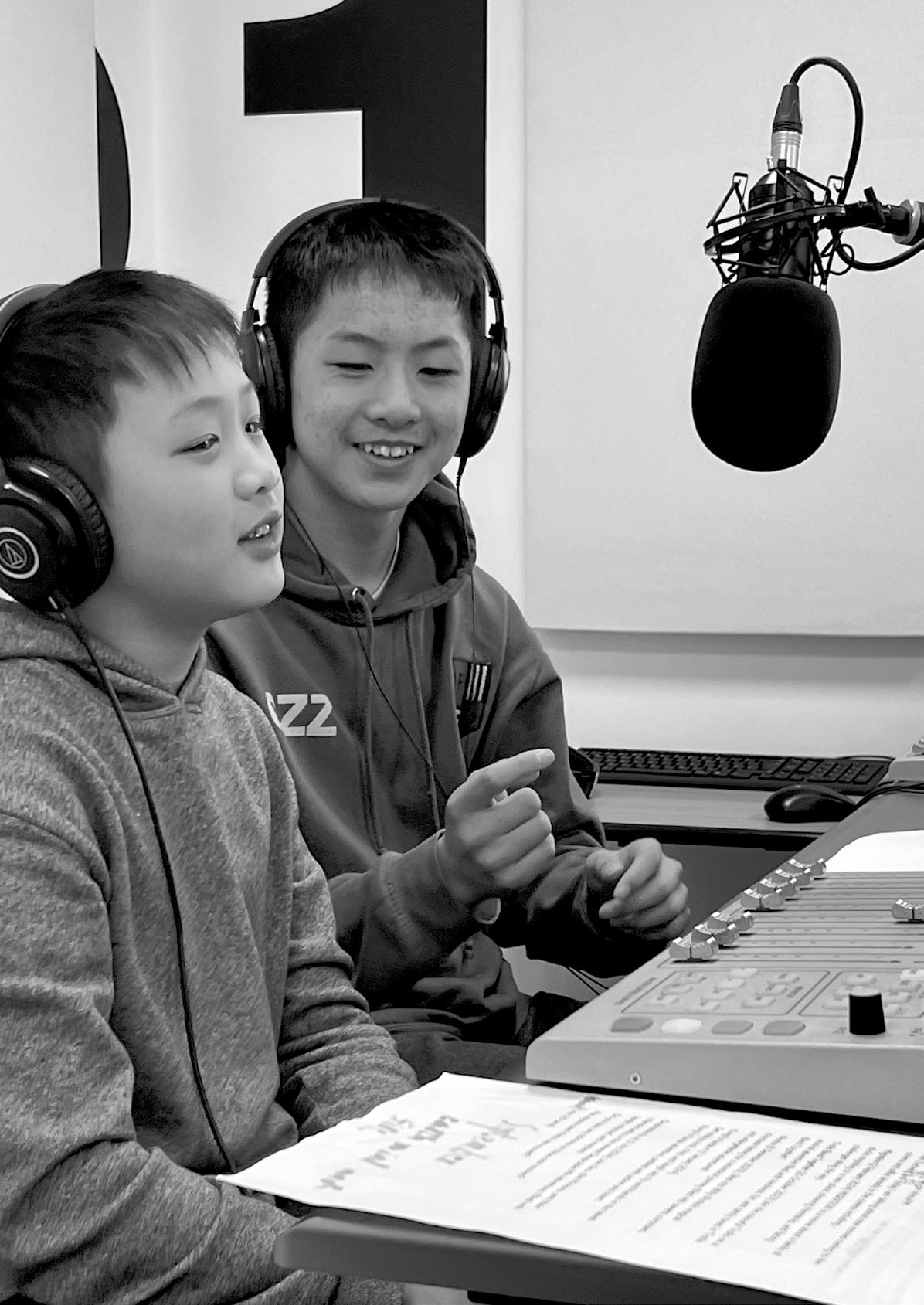
“I think it has changed my life, building up confidence. When I was growing up, I was really shy… but when it came to my P7 show, I actually did it.”



Young people are diverted from antisocial, criminal behaviour and involvement with the justice system


Young people report that their own participation in antisocial and/or criminal behaviour has reduced
Young people report that they feel less inclined to participate in antisocial and/or criminal behaviour
Young people gain an accreditation for a new skill
Young people report an improved relationship with their school
Young people's attendance at school improves
Progression outcomes after completion of the programme; the number of participants gaining/taking up: Modern Apprenticeship/Employment


Progression outcomes after completion of the programme; the number of participants gaining/taking up: Training/Work Experience

Young people participate in activity which improves their learning, employability and employment options (positive destinations)

Progression outcomes after completion of the programme; the number of participants gaining/taking up: College/University placement
Progression outcomes after completion of the programme; the number of participants gaining/taking up: Volunteering
people report an increase in feelings against SHANARRI indicators: Safety, Health, Achievement, Nurture, Activity, Respect, Responsibility, Inclusion
Young people report their mental health has improved and they have a more positive outlook on life
Young people report they are more aware of the risks and impacts of harmful substance use
Young people report they are less inclined to engage in harmful drugs and/or alcohol use




Young people report their confidence has increased
Young people report evidence of participation in physical and sporting activities





Outcome 4: Young people contribute
Young people report their perception of their neighbourhood improves
Young people report a heightened sense of belonging to a community
Young people report feeling their contribution, links with communities and social interaction are improving



Young people report increased motivation to positively influence what happens in their community

Young people go on to volunteer, coach, mentor, support or take a leadership role in community organisations
Hours of volunteering contributed by participants
Community focused awards gained by participants
Young people report feeling more resilient (e.g. believing in yourself, taking things in your stride, being determined, being self-disciplined, being optimistic, adapting to different situations)
Young people report positive, supportive networks – including improved relationships with family, friends and peer mentors
Young people report increased access to appropriate services


Young people report positive changes in their behaviour (e.g. reduced risk taking/ increased understanding of risk/ better ability to make positive choices/ improved understanding of rights and responsibilities)



Outcome 3: Young people’s health and well-being improves






The CashBack NorthEast The programme has delivered considerable success across a number of areas, with several outcome targets for the full three-year period already exceeded, despite a full year of delivery still to come.
We have supported 549 participants to date - well above the projected target of 345 - and recorded over 10,000 hours of volunteering. Strong impact can also be seen in improvements to young people’s confidence, wellbeing, resilience, and relationships with school. These results reflect the strength of our model, which combines creative engagement with trauma-informed, place-based delivery.
However, progress in some areas remains more challenging. In particular, we continue to face difficulties evidencing reductions in antisocial behaviour, improving school attendance, and achieving employment-related outcomes - largely due to external structural barriers such as limited referral routes, lack of employment opportunities, and wider post-school funding challenges.
In these areas, we have adapted delivery and developed new partnerships to improve outcomes in Year 3 - introducing accessible qualifications, refining evaluation methods, and expanding work with justice and employability services. While we anticipate progress across many of these outcomes in the year ahead, a small number may remain below target by the end of the programme. These areas, along with our wider performance and learning, are explored in the analysis that follows.
Outcome 1: Young people are diverted from antisocial, criminal behaviour and involvement with the justice system
Success
While quantitative reporting on this outcome remains challenging, we have exceeded our target for the number of young people who report feeling less inclined to take part in antisocial or criminal behaviour (130 against a two-year target of 98). This suggests that, even in the absence of formal justice referrals, our work is having a positive impact on attitudes and decision-making. Young people have engaged meaningfully in structured discussions on risk, peer pressure, and the consequences of their actions - particularly through our Engage and Youth Media programmes.
Creative activities such as podcasting, radio shows and collaborative media projects have encouraged self-expression, self-awareness, and reflection on the role young people play in their communities. These have
proved effective tools in promoting positive identity and reducing risk-taking behaviours.
Despite this success, we continue to face difficulties securing referrals for young people already involved in the justice system, which has limited our ability to meet targets related to reduced participation in antisocial or criminal activity (9 recorded against a two-year target of 65). Many referrals come from education or social work and relate to mental health, trauma, or social isolation rather than justice involvement.
To strengthen justice pathways, we have recently delivered taster sessions with Denis Law Community Trust and though Aberdeen City Council’s Social Work team, engaging 31 young people from challenging backgrounds, and we are actively developing partnerships including those delivering 'Upside' - Scotland's new prison voluntary throughcare service. While we may not reach the original target, we anticipate significant progress in Year 3 through these strategic collaborations.
Outcome 2: Young people participate in activity which improves their learning, employability and employment options (positive destinations)
A key strength of our programme lies in its ability to re-engage young people who are attending school but struggling to connect with formal education. Many of our school-based participants have reported significant improvements in their attitude toward learning, with 288 reporting a better relationship with school - nearly triple our two-year target. Teachers have consistently fed back that our approach provides an alternative learning environment that supports young people to feel heard, valued, and motivated.
We have also made meaningful progress in embedding accreditation into Youth Media, where staff training in Dynamic Youth Awards has led to qualifications being delivered more consistently and effectively. Young people are gaining recognition for their development through creative group activities, leadership roles, and volunteering.
Despite this progress, some intended outcomes remain difficult to achieve. Improvements in school attendance have been limited, largely because the young people we work with already had acceptable attendance but were disengaged in class. We are therefore seeing impact
more clearly in engagement and progression than in raw attendance figures.
Progression into employment or training has also been slower than hoped. Apprenticeships are scarce locally, and entry-level roles often involve zero-hour contracts, which can feel precarious and overwhelming - particularly for young people managing anxiety or other mental health challenges. Reduced access to funded post-school training has further limited progression options.
To address barriers to qualification delivery in our Training Academy programme, we replaced the SCQF Level 4 Employability Award with the more accessible SCQF Level 3 Personal Development Award - better aligned with our participants’ needs and learning styles.
While we anticipate increased Training Academy participation in Year 3, it’s important to note that many of the outcomes related to employment and training will only become visible after the formal conclusion of Phase 6.
Outcome 3: Young people’s health, mental health and wellbeing improves
Success
Wellbeing remains one of the programme’s strongest areas of impact. Against a two-year target of 240, 531 young people reported improvement across SHANARRI indicators. 544 participants reported increased confidence, and 303 noted a more positive outlook on life. This was often the first step in a wider personal transformation.
In both one-to-one and group contexts, young people have engaged in open conversations around mental health, peer pressure, and substance use. The safe, accepting spaces we provide are central to this. One participant in Engage noted: “This course reminded me that I can talk to people—it’s not as hard as I think.” In Youth Media, young people explored community and identity through podcasting, radio, and storytelling projects - empowering them to reflect and build self-belief.
Programmes like the Training Academy have also helped young people overcome significant social anxiety, and in several cases, reengage with education. Liam, a long-term Youth Media participant, moved from crippling shyness to becoming a confident presenter and mentor. He now studies Media at RGU, remarking: “Without shmu, I would not be as far as I am with achieving my goals.”
Although wellbeing outcomes are strong, we recognise the need to better understand the longer-term impact of our support. While many young people report
improved confidence and emotional wellbeing during the programme, tracking sustained change beyond their participation remains challenging.
We also see opportunities to more clearly link creative activities to wellbeing outcomes through improved session design and reflective practice. In Year 3, we aim to strengthen this connection by embedding simple wellbeing check-ins and outcome tracking within key activities.
Finally, access to specialist mental health services remains limited for many of our participants. While we provide trauma-informed support, we will continue to develop referral pathways to external services as part of our wider work within Aberdeen’s Mental Health and Wellbeing partnership network.
Outcome 4: Young people contribute positively to their communities
Participants have taken part in a wide range of community media projects that have strengthened their connection to place and identity. Through activities exploring the theme of Community, young people examined their role in their neighbourhoods and reflected on how their actions can influence others - positively or negatively. These sessions led to open, thoughtful conversations and increased self-awareness. A strong sense of belonging has emerged across the programme, with participants reporting a greater connection to both their peers and local areas.
One of the most successful developments this year has been the introduction of Young Leader roles within our Youth Media project. These provide experienced participants with the opportunity to mentor and support newer members, developing leadership skills, confidence, and a sense of responsibility. Younger participants have responded positively to this peer support model, contributing to a more inclusive, encouraging learning environment.
We have significantly exceeded our three-year volunteering target, with over 10,000 hours contributed across the programme to date. A number of young people have achieved higher-level Saltire Awards, including several reaching the 200-hour milestone, with others working toward 500 hours. These achievements recognise the commitment and contribution our participants are making to their communities through sustained volunteering and youth-led media work.
While internal volunteering and leadership progression have been strong, external opportunities for young people to take on roles in other organisations remain limited. As a
result, we are unlikely to meet our target for volunteering or leadership beyond our own programme.
In addition, many participants who achieved initial Saltire Awards in Year 1 are no longer eligible to be counted again in outcome totals, limiting our ability to reflect their ongoing community contribution in subsequent years.
Outcome 5: Young people build their personal skills, resilience, and benefit from strengthened support networks and reduce risk taking behaviour
Our programme continues to create safe, supportive spaces for young people to develop personal resilience, confidence, and social connections. Participants regularly report increased optimism, improved peer relationships, and a stronger belief in their ability to manage challenges.
To date, 334 young people have reported feeling more resilient - exceeding our two-year target of 240.
Young people have developed personal and social skills through both structured sessions and informal peer interaction. Across all three strands of our programme, participants have formed new friendships and support networks. Activities such as filmmaking, podcasting, music, and group discussions encourage risk-taking in
a safe environment, where young people are supported to try new things and reflect on their experiences. One teacher noted: “Two pupils who attended the course have been unable to engage or sustain attendance in any other support. Their time at shmu has been the only thing they’ve engaged with for a period of time.”
Leadership roles, volunteering, and creative tasks have helped young people build confidence and recognise their own capacity for positive change. For example, a participant from Youth Media has progressed from isolation to actively volunteering with Police Scotland, applying for a Uniformed Services college course, and raising funds to join the Tall Ships Trainee Programme.
While self-reported resilience outcomes are high, we continue to underreport behaviour-related improvements, such as reductions in risk-taking or better decisionmaking. Stakeholder feedback suggests that participants are making progress in these areas, but this is not always captured through current evaluation tools.
In response, we’ve revised our data collection methods and introduced new reflection tools. We will continue to develop activity-specific approaches to track behavioural change more effectively in Year 3, ensuring this key aspect of personal development is fully reflected in our reporting.
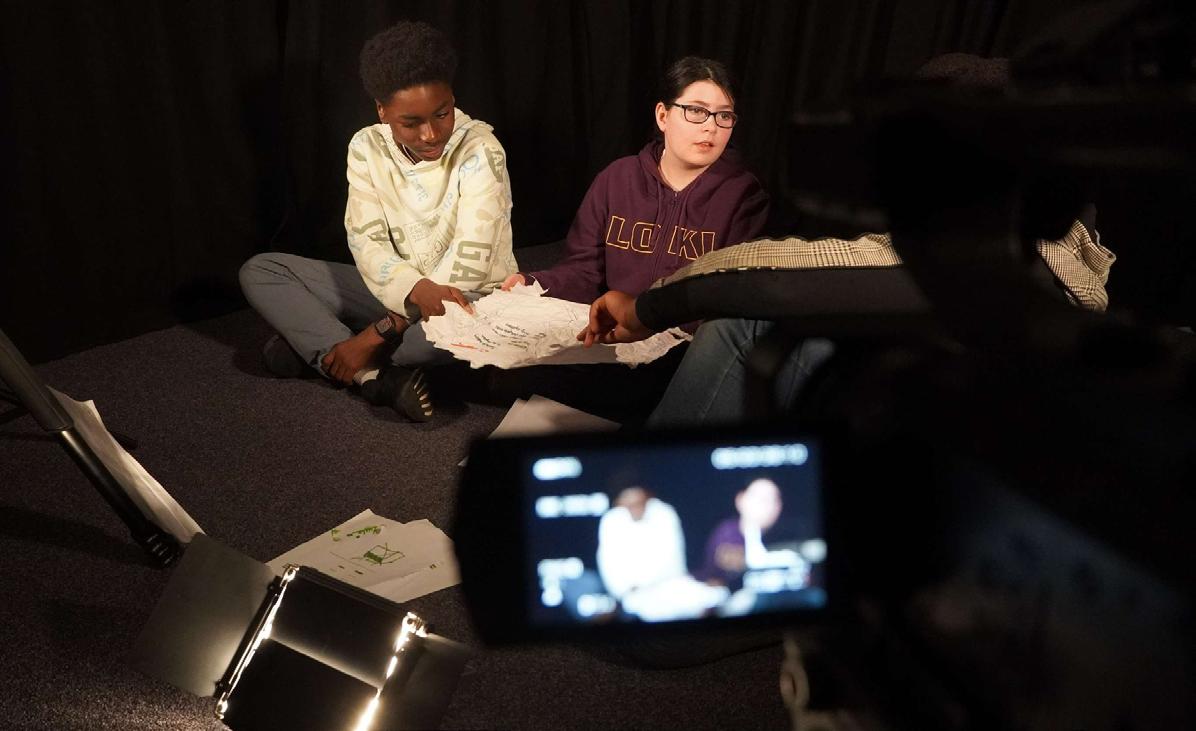
“The young people (and myself) thoroughly enjoyed themselves... It was an amazing experience, and they all felt very important and valued.”
Northfield Academy teacher (as part of Youth Media Outreach Project)
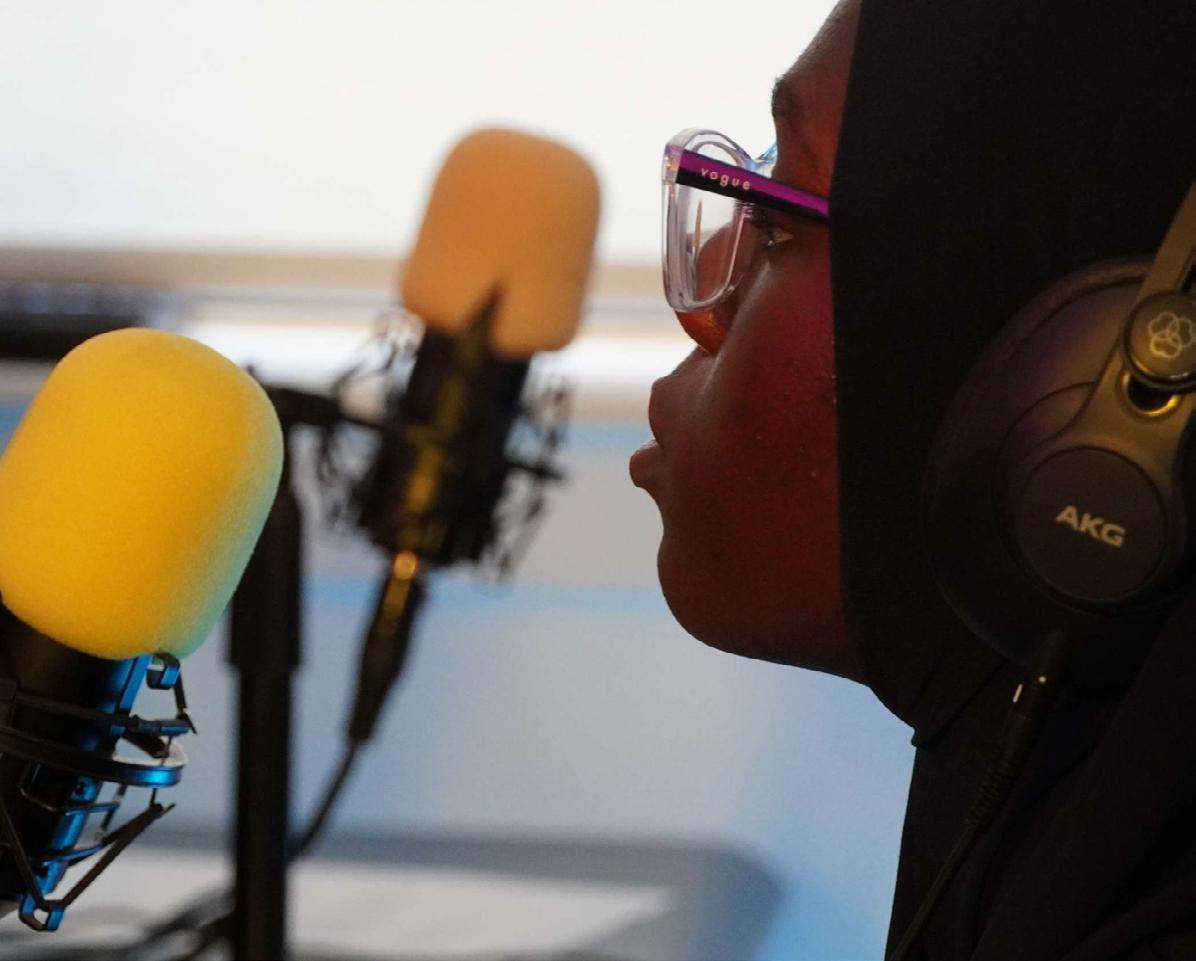
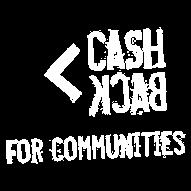

Summary
Our CashBack NorthEast Youth Media project offers a creative, skills-based pathway for 10 to 18-year-olds - primarily from Aberdeen’s seven priority areas - to explore identity, develop confidence, and build strong peer networks. Using media tools such as film, podcasting, and radio, participants are supported to express themselves, reflect on community issues, and strengthen their wellbeing. Built around SHANARRI wellbeing indicators, the programme provides inclusive progression routes - from tasters to leadership roles and accreditation. In Year 2, we focused on expanding outreach to underrepresented groups, enhancing transition support, and embedding leadership opportunities for older participants.
Programme Delivery
In Year 2, our Youth Media programme supported over 100 young people through a diverse range of short- and long-term creative projects. Delivery took place in schools, community venues, and our media hubs in Woodside and Torry, with a strong focus on inclusion, wellbeing and progression.
School-based projects at St Machar and Northfield Academies focused on re-engaging disengaged pupils. In St Machar, pupils selected shmu as their Youth
Philanthropy Initiative charity, working with our team to produce a compelling short film and group presentation. At Northfield, S1 pupils produced a foodbank radio advert and podcast, demonstrating creativity and growing confidence in public speaking and teamwork.
We ran intensive summer and holiday sessions, including a short film project and the Gable Ends youth arts project - supporting Care Experienced young people to co-design and install a city centre mural, complete with scissor lift training. Phase 2 of the mural project will continue into Year 3.
With Health Improvement Localities funding, we delivered an eight-week Media Makers project with young people in Torry. Participants created a podcast and short film exploring community identity and aspirations, with overwhelmingly positive feedback.
We also worked with unaccompanied asylum-seeking young people on a project using football to explore integration, identity, and belonging, supporting wellbeing through a shared creative process.
Youth Media participants played a central role in the inaugural Northern Lens Youth Film Festival, with several of their films selected by the Youth Curation Panel. Some have since progressed into shmu’s wider film education programme and are exploring careers in media and production.
Thematic Highlights
Wellbeing & Identity
Group work supported reflection on community, self-esteem and belonging. A LOIP-linked community photography project helped young people engage with their surroundings in creative, active ways.
Youth Social Action
Films like ‘Tied to Tech’ explored digital dependence and mental health. Participants also contributed to Celebrate Aberdeen, shmuFEST, and the Envirolution Festivaldeveloping pride, purpose, and civic awareness.
Leadership & Accreditation
Three Young Leaders supported delivery and mentoring, while 13 young people worked toward Dynamic Youth Awards. Staff capacity was enhanced with a new Youth Development Worker to expand outreach and informal accreditation delivery.
Progression & Next Steps
Year 3 will focus on expanding recruitment in target areas, strengthening accreditation, and supporting transitions into secondary school, college, and work. We will continue to embed the Youth Leader model as a core part of our progression offer.
“I can't express enough the impact you guys have had on my sister. She comes out every Tuesday buzzing. Her confidence has come on so much in such a short period of time and shmu has been a big part of that!”
Sister of Youth Media participant










Our Youth Media case study demonstrates the profound impact of the CashBack NorthEast programme on Liam*, a participant who joined shmu at age 12 facing acute shyness, low confidence, and weak literacy skills. Through years of sustained engagement, Liam developed communication skills, built friendships, earned qualifications, and grew into a confident young adult now studying Media at university. His story exemplifies how long-term, creative youth engagement can build confidence, leadership, and ambitionand the life-changing difference that consistent support can make.


Liam joined the Youth Media team in 2018 at the age of 12. As an only child living with his parents in Seaton, an area ranked SIMD Decile 1, Liam faced barriers to confidence and self-expression.
Although polite and well-mannered, Liam struggled significantly with acute shyness, describing social interactions as daunting. When he first attended a shmu summer programme, he rated his confidence and communication skills at only 3 out of 10. At that time, he wasn’t involved in any other youth activities in his local area and, despite attending school regularly, he felt that his literacy skills - particularly spelling - were weak. His low confidence levels also prevented him from considering future ambitions.


Staff observed that Liam was incredibly quiet and often needed support to participate in activities. While he was always diligent and respectful, he lacked self-belief, which limited his willingness to challenge himself. The idea of participating in media-based activities, particularly speaking on radio, felt overwhelming.
With encouragement, Liam slowly began to step out of his comfort zone. Reflecting on his early days at shmu, he recalls: “I can remember feeling extremely nervous to be on the radio for the first time, and as a result, not really speaking much on the first few shows I had taken part in.”
Following the summer programme, Liam’s self-confidence soared, with his personal rating in this area increasing from 3 to 10. He remained a dedicated member of the CashBack funded shmu Youth Media project throughout secondary school, building strong friendships with fellow participants. Reflecting on his experience, Liam shared: “I have met people who have become some of my closest friends, as well as strengthened the friendships I already had.”

*Liam is a pseudonym

Liam’s commitment and reliability made him an integral part of the Youth Media team, particularly during the pandemic, when he engaged regularly online and supported the transition back to in-person activities. His quiet leadership and reassurance helped new participants feel welcome, and he consistently assisted staff with evaluation processes and project design decisions.
In his time at shmu, beyond the Youth Media project, he has taken part in the BFI Film Academy, been a regular attendee of our Friday Film Club, completed his L6 NPA in Film and Media, attended summer sessions, been an active member of our Youth Forum, achieved his 500 hour Saltire Award for volunteering through presenting community focused radio content, and is now one of the regular anchor presenters on our weekly Senior Youth radio show aimed at the 16-20 year old audience.


Liam has fully immersed himself in shmu, taking every opportunity to develop new skills, grow in confidence, and contribute meaningfully. His journey highlights the importance of sustained youth engagement, demonstrating how a consistent, inclusive, and supportive environment can empower young people to thrive and succeed.
Liam is now in his first year of a Media Studies degree at Robert Gordon University, a milestone he credits to his time at shmu. “My participation at shmu is partially what got me into my course, as editing, film theory, and critical writing skills are essential to my degree.” His prior learning through Youth Media has given him a solid foundation, helping him feel confident in his studies and enabling him to successfully sustain his university place.


Liam’s engagement with shmu hasn’t ended; he is now one of the organisation’s first Young Leaders, continuing his volunteering journey by mentoring younger









participants at weekly sessions. In this role, he shares his knowledge in a quiet, supportive way, encouraging others to step outside their comfort zones. As he develops leadership and youth work skills, he is also working towards his Gold Youth Achievement Award, further enhancing his CV.
At 12 years old, Liam’s goal was to improve his confidence and secure a good job after school. He has far exceeded these ambitions, developing strong communication skills, a passion for media, and valuable experience. Now balancing part-time work alongside his studies, he looks ahead with optimism: “Without shmu, I would not be as far as I am with achieving my goals, and I am certain that everything I have learned, as well as the bonds I have formed, will carry on to my future and for the rest of my life.”


Liam’s journey exemplifies the transformative power and impact of shmu’s work with young people which would not be possible without the long-term investment and support from CashBack.

“I have met people who have become some of my closest friends, as well as strengthened the friendships I already had.”





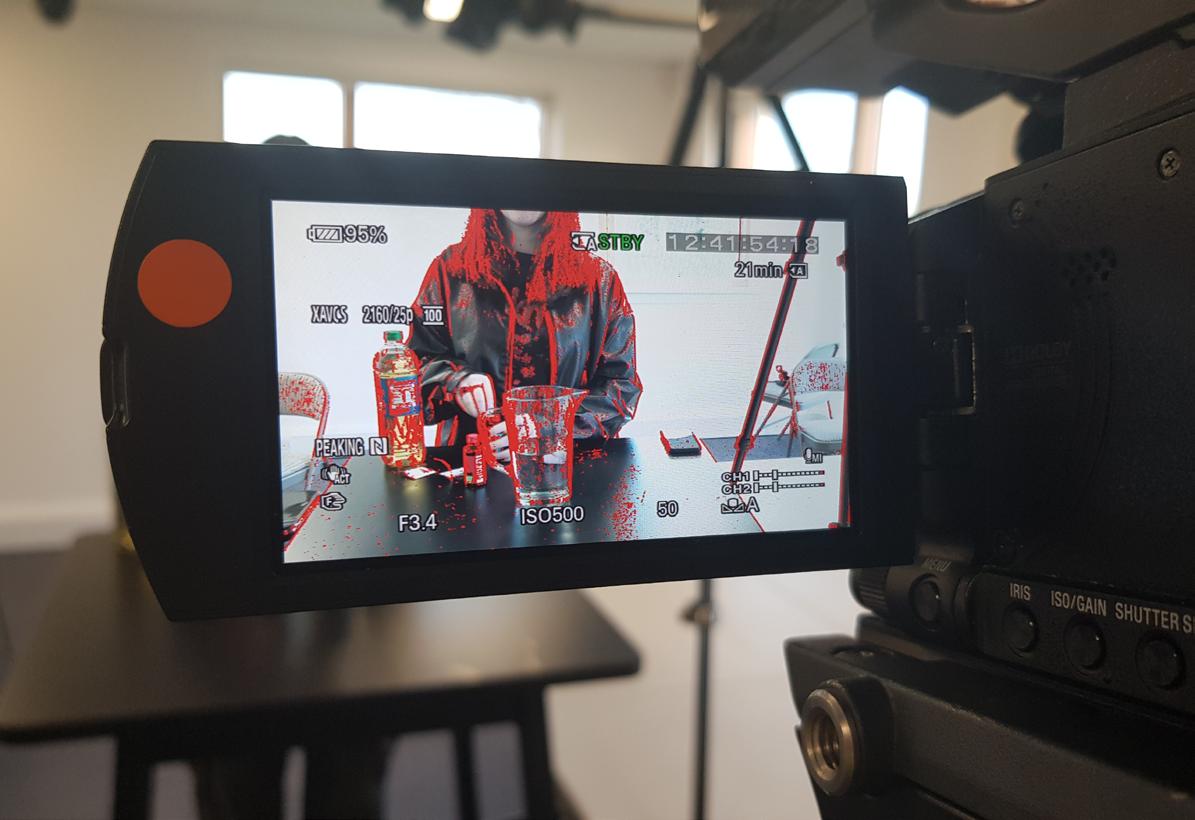
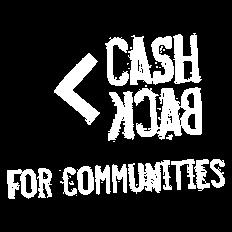
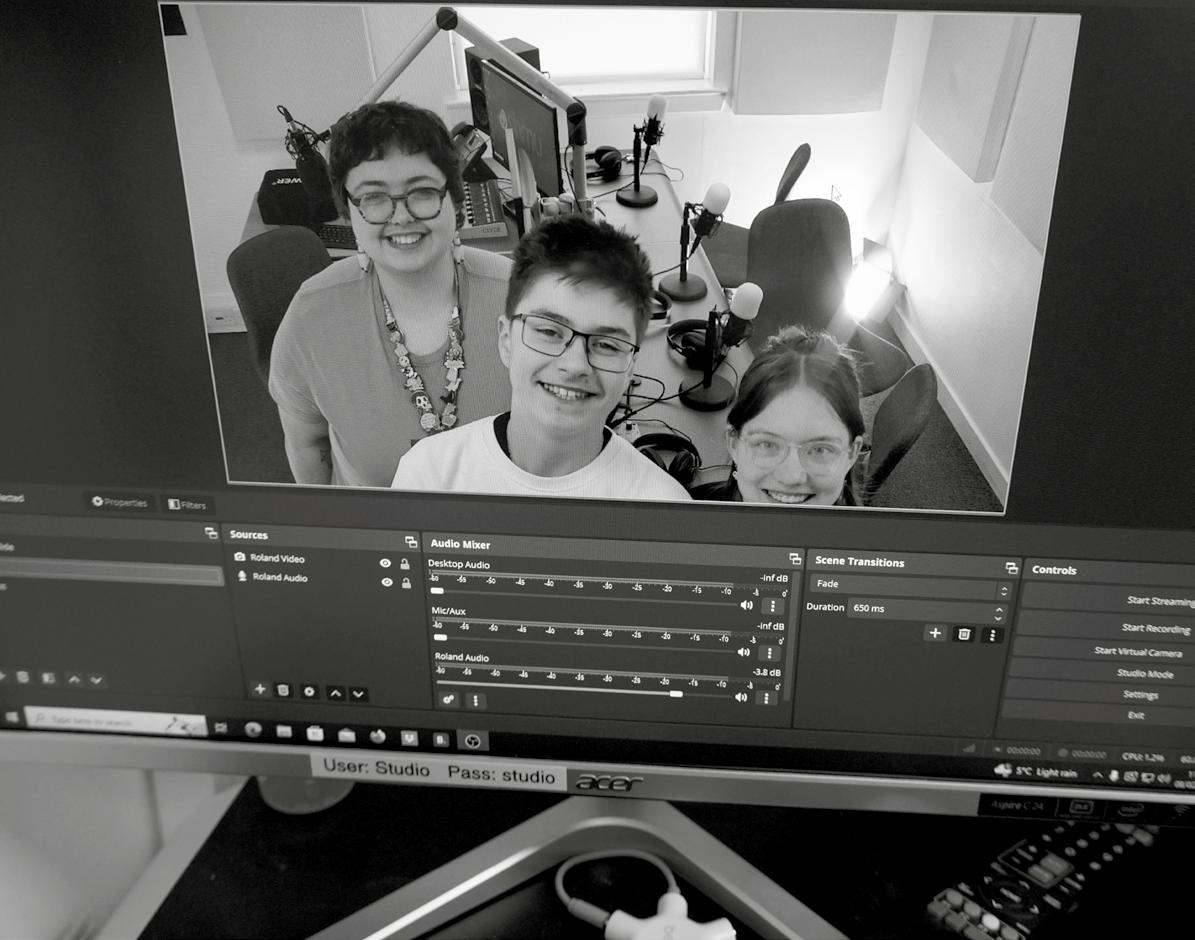
“The Youth Workers give good advice and are good role models.”
Youth Media participant

Summary
The CashBack NorthEast Training Academy supports S4–S6 pupils identified as being at risk of leaving school without a positive destination. Through group and one-to-one sessions, young people explore personal strengths, build transferable skills, and prepare for work or further learning. Activity is flexible and personalised, combining creative engagement with employability tasks, qualification delivery, and emotional support. Year 2 saw the programme delivered across three schools, with young people progressing into college, training, and employment.
Programme Delivery
In Year 2, we delivered the Training Academy programme across three school settings: St Machar Academy, Northfield Academy, and Peterhead Academy. The flexible, tailored nature of the programme allowed us to work with both groups and individuals facing a wide range of barriers.
At St Machar, we delivered two group programmes for S4 and S5 pupils. Sessions explored identity, teamwork, digital storytelling, and future planning. Feedback from school staff highlighted significant improvements in engagement, confidence, and peer interaction. Several participants have since applied to college or continued in school with a plan to rejoin the Training Academy in Year 3.
Northfield Academy re-engaged with the programme following the appointment of a new Head Teacher and a renewed focus on partnership working. We supported two small groups and one individual participant - a winter leaver interested in construction - through one-to-one sessions. With support from our Employability Worker,
she researched the sector, attended an information session, and was successfully accepted onto Barnardo’s Introduction to Construction course, which she completed in early 2025.
Our work in Aberdeenshire began with a neurodiverse pupil from Peterhead Academy, supported one-toone with a bespoke package of activity focused on confidence, goal setting, and employability skills.
Across all sites, our shift to the SCQF Level 3 Personal Development Award has improved accessibility and reduced barriers to accreditation, with content tailored around individual strengths and preferred learning styles.
Thematic Highlights
Flexible, Tailored Support
From anxiety management to hands-on creative tasks, we adapt delivery based on need. One pupil moved from social withdrawal to presenting a short film at a celebration event.
Accreditation
We transitioned from the SCQF Level 4 Employability Award to the SCQF Level 3 Personal Development Award - offering a more accessible, experiential route to recognising achievement.
Partnership Working
Relationships with St Machar and Northfield Academies remain strong, and we have been approached by Portlethen Academy to explore delivery in Year 3.
Progression & Next Steps
In Year 3, we will consolidate delivery in existing schools, explore new partnerships in Aberdeen and Aberdeenshire, and increase post-school tracking to better capture long-term outcomes.
“Pupils are definitely listened to and respected at shmu. shmu puts pupil voice at the centre of their practice”
Teacher, St Machar Academy
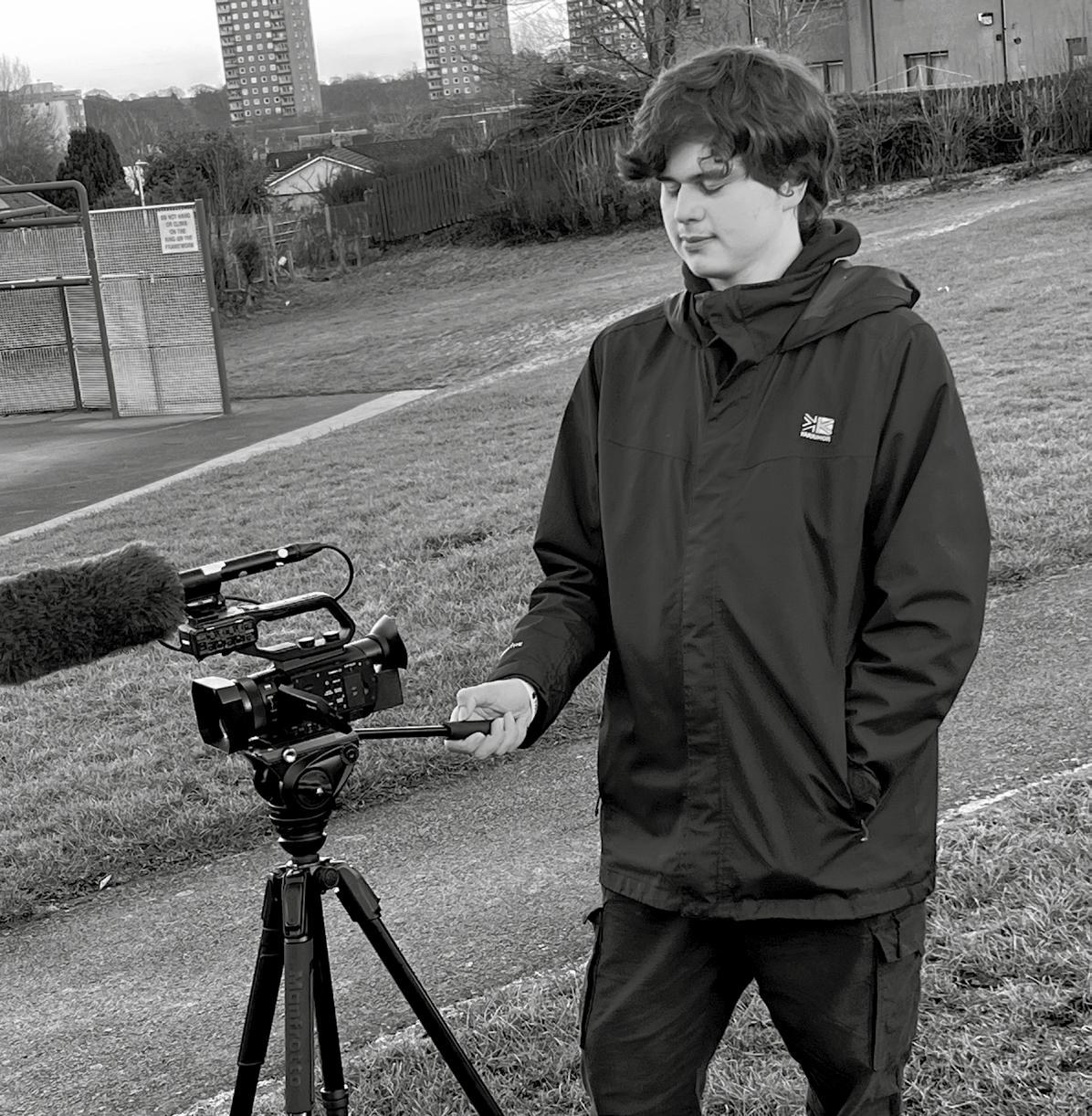
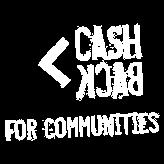















“I believe the whole project helped them understand themselves a bit better, improved confidence, built resilience and built friendships.” Teacher, Meldrum Academy





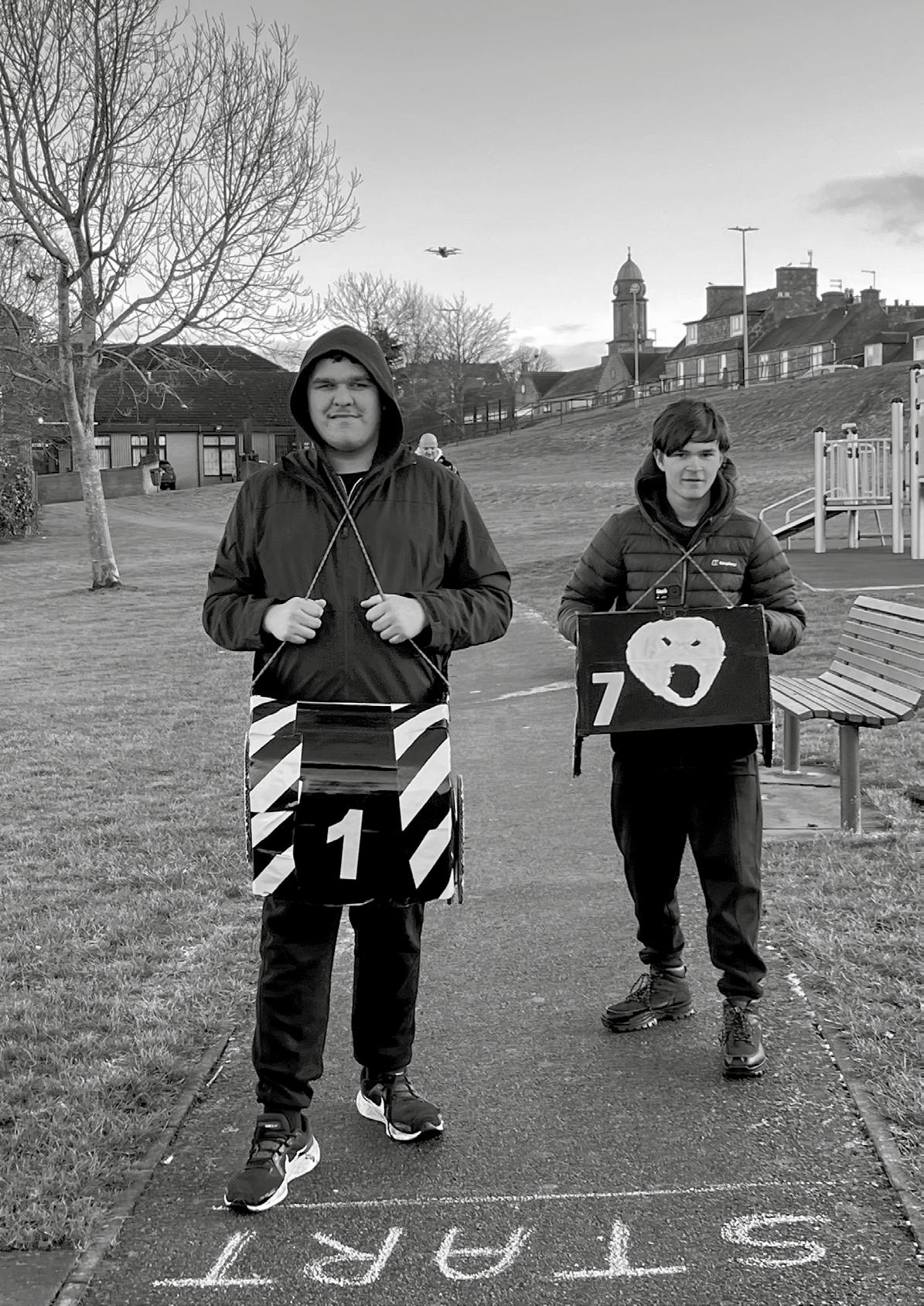
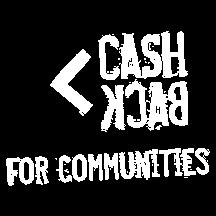











Our Training Academy case study demonstrates the transformative impact of the CashBack NorthEast programme on Lisa*, a 15-year-old pupil referred after struggling with motivation, disrupted education, and challenges linked to ADHD. With one-to-one support tailored to her learning needs and interests, Lisa built trust, developed new strategies to manage her ADHD, and discovered a passion for construction. Her consistent engagement and positive attitude led to a successful transition into Barnardo’s Introduction to Construction course, which she completed in early 2025. Lisa is now planning to apply to college, with ongoing support from shmu and partners. Her story highlights the power of flexible, person-centred support in helping young people re-engage, build confidence, and take meaningful steps toward a positive future.
Lisa was referred to shmu by her Guidance Teacher at Northfield Academy. Lisa has ADHD and finds it difficult to concentrate in busy or distracting environments. She had begun to recognise that music helped her focus, but she lacked other effective strategies to support her learning and wellbeing.
Although she had a small and supportive group of friends and is socially active, Lisa struggles with being indoors and rarely gets up early - something she said would change if she had “something worth getting up for.”
Lisa’s school journey had been turbulent. Following an incident in S2, she was expelled but returned midway through S3. By then, she had missed the equivalent of a full year of education, which significantly impacted her learning and confidence. Despite these challenges, Lisa worked hard and performed well throughout the remainder of S3 and into S4.


However, when she returned for S5, she found herself expected to study subjects she had previously missed and had little interest in. This led to a decline in motivation and engagement, prompting her referral to shmu’s Training Academy.
It was agreed that Lisa would start with 1:1 support to build trust and assess her needs, with the potential to move into group work later. The aim was to re-engage

*Lisa is a pseudonym

Lisa in a supportive environment that could help her build confidence, explore her interests, and prepare for a positive next step.
Lisa began receiving 1:1 support from one of our Employability Support Workers, with initial sessions focused on building rapport and understanding her interests and goals. Through these conversations, it became clear that Lisa was passionate about construction and was particularly interested in learning bricklaying.
Together, they explored Lisa’s aspirations and mapped out a pathway that could help her gain relevant skills and experiences ahead of applying for college. While we offered media-based activities through the wider programme, Lisa chose to concentrate solely on employability support. Her sessions focused on building a CV, developing job-search techniques, and researching immediate post-school options and future college courses.


To support Lisa’s interest in construction, we explored potential opportunities with local partners. While Robertsons Construction, who have previously supported our programme, were unable to offer a placement due to Lisa being under 16, we identified an alternative route through Barnardo’s Works. Lisa was supported to explore their Introduction to Construction course, and with our help, she attended an information session and completed a referral to start in January.












Throughout this period, Lisa engaged consistently, attended regularly, and maintained a positive and proactive attitude during sessions. She took ownership of her development and showed increasing confidence in her ability to progress. By ensuring a warm handover to Barnardo’s, we helped maximise her chances of a successful transition and sustained engagement with the programme.
Although Lisa initially had no interest in media, she engaged positively with our support, attending regularly and building a strong working relationship with her Employability Support Worker. Her level of commitment and consistency marked a significant contrast to her experience at school.
In addition to employability support, we introduced practical strategies to help Lisa manage her ADHD. Several of our staff have lived experience of neurodiverse conditions and shared personal coping techniques, which helped Lisa adopt new approaches to improve focus and reduce overwhelm. These small but effective adjustments enabled her to recognise her strengths, set realistic goals, and build confidence in her ability to succeed.


In January 2025, Lisa began Barnardo’s Introduction to Construction programme. Feedback from both Lisa and Barnardo’s staff has been overwhelmingly positive. Lisa enjoyed the programme, maintained good attendance, and remained engaged throughout.
Having completed the course, Lisa now plans to apply for college to continue her journey towards a career in construction. However, she has made a mature decision to wait until next year to ensure she’s ready to fully commit and sustain her engagement. In the meantime, we’ve offered her ongoing support through our post-school programmes and have worked with Barnardo’s and SDS to ensure a joined-up approach to her continued development.


“The (shmu CashBack) course really helped and put me in touch with the construction course, and that has opened doors for me and helped me to learn about the industry that I really want to do” –
Lisa









“I am always embarrassed about the things I like, but I don’t feel like this at shmu – I can talk about it all and nobody judges me.”
Engage participant

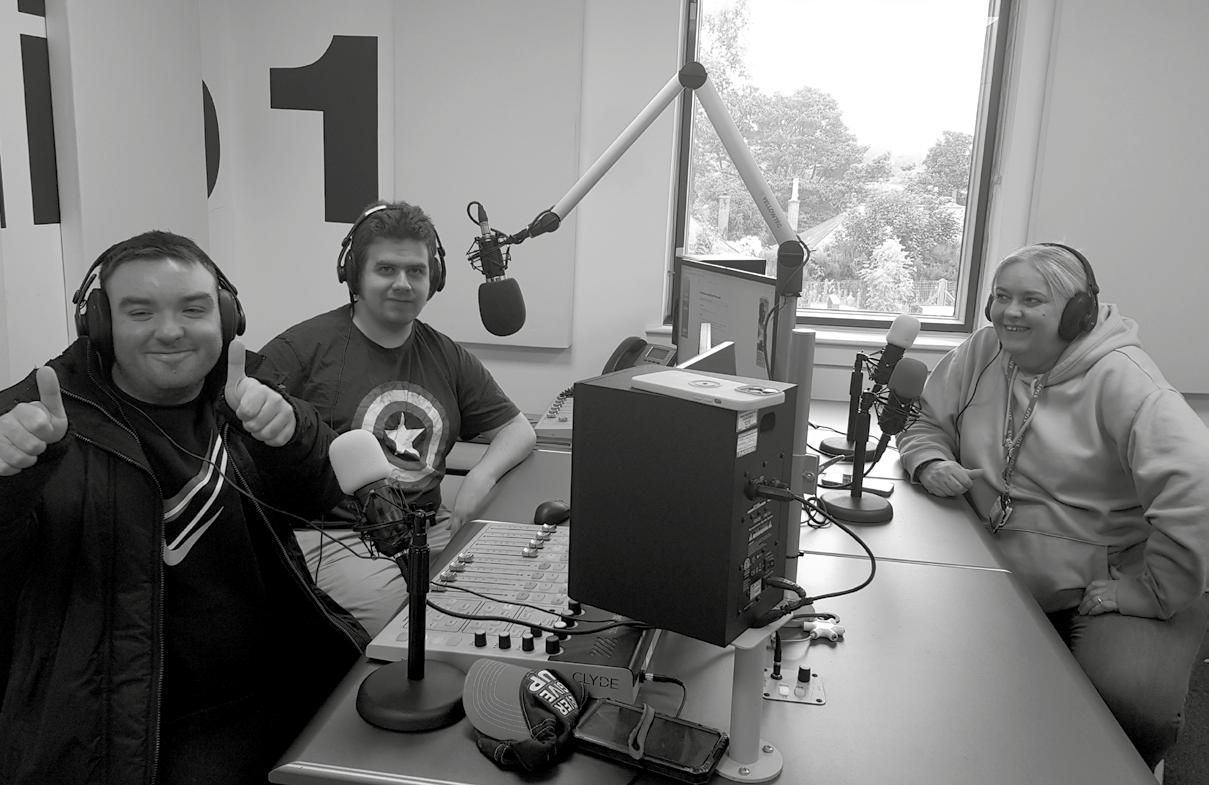
Engage is designed for young people aged 16–25 who are justice-experienced or at risk of offending, and who face multiple barriers to engagement. Through creative media and relationship-based practice, participants build confidence, reflect on behaviour, and explore positive futures. Sessions are trauma-informed and combine life skills, creative expression, peer support, and progression planning. In Year 2, we delivered two full cohorts and one introductory music course, with strong outcomes in confidence, routine, and social connection.
In Year 2, Engage ran two full twelve-week courses alongside a shorter introductory Introduction to Music strand. The programme was delivered through structured, weekly group sessions that blended creative media production with wellbeing activities, life skills, and employability support.
Participants developed hands-on experience in filmmaking, radio broadcasting, and music production - learning how to script, shoot, edit, and present content. Music sessions involved beat making, lyric writing, and audio mixing using industry-standard software. These creative opportunities helped young people express themselves, build routine, and gain confidence in both technical and interpersonal skills.
Life skills workshops covered practical topics such as budgeting, healthy relationships, and the impact of substance use. One session - on the dangers of alcoholbecame a turning point for a participant who began making positive changes in his behaviour and lifestyle. Group activities such as baking, gardening, and arts projects supported social connection and emotional regulation. Each programme culminated in a celebration event attended by family, peers, and partners. These events offered participants a public platform to share their achievements and take pride in their progress.
Key success stories include a participant whose film about autism is now being used to raise awareness, another who has secured employment in London, and several who progressed to college or into volunteering roles. The consistency of the Engage programme has helped build trust, foster belonging, and enable participants to take real steps toward positive futures.
Participants reported better sleep, reduced substance use, and greater emotional resilience. Several began to re-establish fractured relationships with family or support services.
Skills & Progression
Young people developed creative and transferable skills while receiving CV and interview support. One participant has since secured work in London; another is now volunteering locally with a youth organisation.
Justice Partnerships
We strengthened links with Justice Social Work, Barnardo’s, and Police Scotland. Our new partnership with Upside, Scotland’s voluntary throughcare service, will support transitions from custody in Year 3.
Progression & Next Steps
We will deepen partnership delivery with Upside and other justice services, expand our reach into community settings, and continue to support young people to build confidence, stability, and sustainable futures.
“This course reminded me that I can talk to people –it’s not as hard as I think. I was hoping to improve on my confidence when I joined shmu and to just get out of my house. I got what I wanted!”
Engage participant
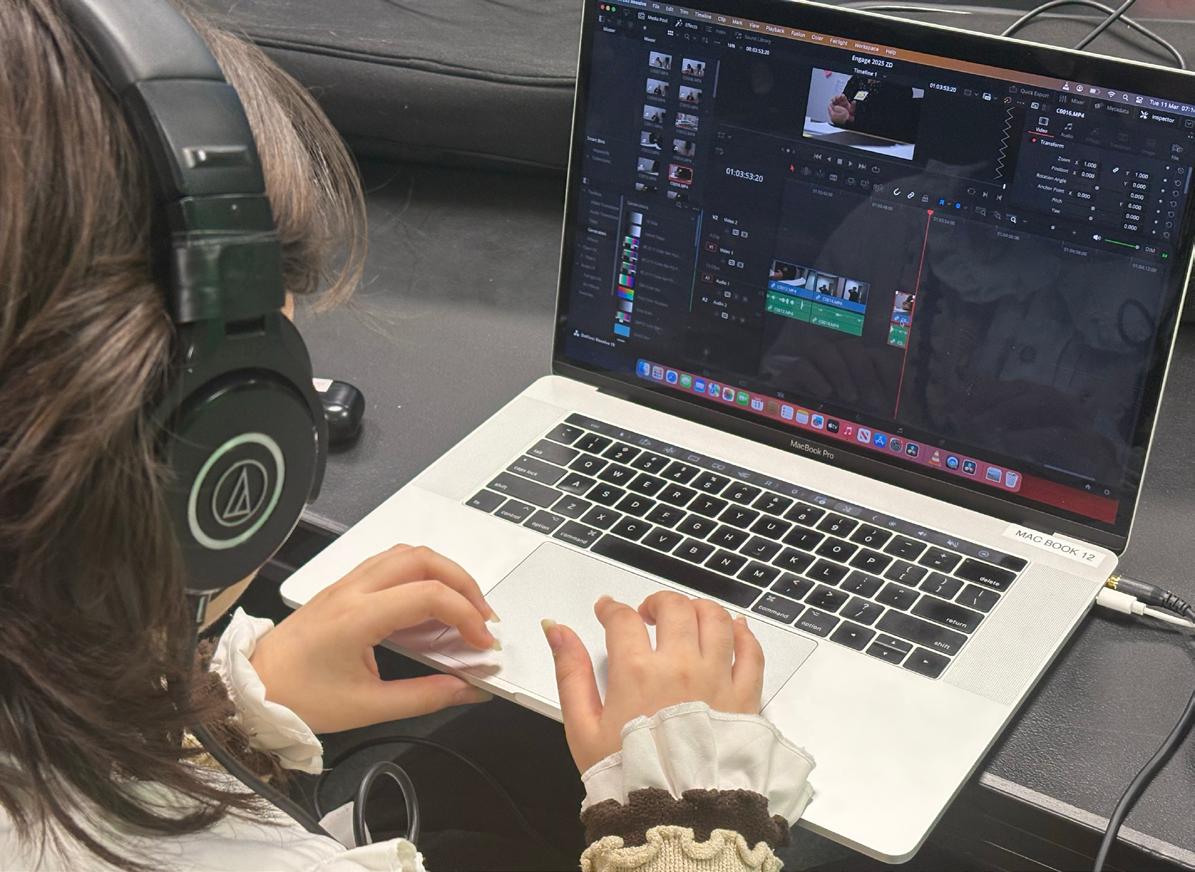

“The pupils are getting new experiences and finding a new community they can relate to.”
Teacher, St Machar Academy











Our Engage case study highlights the powerful impact of the CashBack NorthEast programme on Ben*, a young person referred by Justice Social Work after struggling with anxiety, poor routine, and fractured family relationships. Initially reluctant and disruptive, Ben gradually engaged with the programme, developing structure, confidence, and trust through creative activity and group support. A key turning point came during a workshop on substance use, which prompted reflection on his drinking and wellbeing. Over the course of twelve weeks, Ben built strong peer relationships, improved his behaviour, and rediscovered his passion for music. He now feels part of a supportive community and is exploring further education in music production - demonstrating the value of person-centred, creative engagement for young people navigating complex challenges.


Before participating in our Engage programme, Ben's life was marked by a lack of routine, which significantly impacted his mental health and family relationships. With a keen interest in music, frequently attending another charity ‘Music 4 U’ and performing at his parents' bar, Ben sought opportunities to enhance his musical talents and establish a structured lifestyle. However, his irregular sleep patterns led to daytime lethargy, causing friction at home and resulting in frequent arguments with his parents.
This disruption in his daily life extended to his social interactions; Ben reported significant anxiety about meeting new people, which he feared might prevent him from fully engaging in and benefiting from our twelveweek programme. His anxiety was not just a minor concern but a potential barrier to participating in group activities that are integral to the programme’s structure.


Ben initially struggled with punctuality and integrating into the group setting, often arriving late and causing disruptions. As the programme progressed the supportive environment and friendships formed within the group helped him overcome these hurdles. Ben began to forge strong bonds with his peers, which played a crucial role in his transformation.
The programme offered Ben a structured introduction to various media production techniques, including filmmaking, lyric writing, beat making, and radio production. Life skills sessions were also a core component, where Ben engaged in activities such as gardening, stone painting, and baking. These sessions not only supported learning and the development of new skills but also fostered personal growth and wellbeing.


his careless drinking habits and recognised the resulting dangerous situations. The realisation that drinking impacted on his personal safety and his mood the following day was a turning point, prompting Ben to reconsider his approach to alcohol consumption.
Ben developed a reliable routine that drastically improved his time management and general organisation. His interest in music production was nurtured, leading him to explore pursuing further education in this field. His enthusiasm was clear to see, as evidenced by his comments after each session. He often expressed eagerness to share his daily achievements with his family, particularly his father, which not only boosted his self-esteem but also repaired and strengthened his family relationships.

A significant moment for Ben occurred during a session focused on the consequences of substance use; this discussion was eye-opening for him, as he acknowledged
*Ben is a pseudonym

The regular structure of the Engage programme had a positive and lasting impact on Ben and his enthusiasm for the course was clear to see; “After every session I could not wait to go home and tell my dad and others about what I had done at shmu.”- Ben.
Ben’s Support Worker at shmu provided a positive testament to his development - “We have seen a really positive shift in Ben’s behaviour as he has progressed through the course. Ben was quite disruptive at the start and would often interrupt others but as time has gone on, he has become more aware of his actions and how to behave appropriately in group settings. Ben has grown in confidence and feels more positive about his next steps and future since coming to shmu.”
Ben himself reflected on his achievements with pride, particularly valuing the skills he gained in radio scriptwriting and collaboration. He felt empowered and valued, truly part of a group that supported and believed in him.




















“During the course - I managed to set alarms and come in on time and also to do a radio script and work very hard on things. I was able to help my friends and work together as a group. I felt part of something.”

Ben


During Year 2 of the CashBack NorthEast programme, we continued to strengthen strategic partnerships, deliver high-impact community campaigns, and expand our physical footprint to enhance accessibility and inclusion. Our efforts have focused on improving mental health, challenging poverty, and extending reach into priority areas across Aberdeen. We also secured capital investment to refurbish our headquarters, ensuring we can continue to deliver high-quality services and expand provision into Year 3 and beyond.
Following our Phase 5 commitment to prioritise mental health and wellbeing, we delivered two major campaigns in Year 2.
In May 2024, we led a citywide campaign during Mental Health Awareness Week, highlighting lived experiences and the services available in Aberdeen. We launched the shmu IN FOCUS podcast as part of this campaign, exploring mental health stories and signposting support. These activities were supported in part by our CashBack NorthEast programme, with participants contributing to content creation and amplifying their voices across our platforms.
In October, we played a leading role in Challenge Poverty Week, co-ordinating campaign activity in partnership with CFINE and other Fairer Aberdeen Fund (FAF) partners. shmu’s Chief Executive contributed to a national roundtable hosted by the Poverty Alliance, meeting with the Cabinet
Secretary for Social Justice to discuss the lived realities of poverty in Aberdeen and the role of community media in amplifying underrepresented voices. As part of the campaign, we also delivered social media training to FAF partners and produced three visual podcasts combining lived experience with expert insights. A highlight of the week was our Screening and Dialogue event, co-hosted with local partners and attended by over 90 guests, including senior public sector leaders. The event showcased communityled solutions and featured contributions from the Joseph Rowntree Foundation and The New Local. Content from the event was compiled in a digital magazine, shared widely across networks. Challenge Poverty Week Digital Magazine
Place-Based Support
We continue to work with partners to develop new delivery spaces in Aberdeen’s priority areas. In November 2023, we opened a dedicated TV and music recording studio within Greyhope Primary School and Community Hub in Torry. The space, modelled on our Woodside studio, addresses a key accessibility barrier for younger participants, who would otherwise face two bus journeys to attend sessions.
We are now consulting with young people in Torry - led by Youth Media participants from the area - to shape the future programme offer within the space. This work will support continued expansion of the CashBack NorthEast programme and reduce participation barriers for those in the south of the city.
We remain a strategic partner in the redevelopment of Aberdeen’s only independent cinema, the Belmont, working with Belmont Community Cinema Ltd (BCC) to secure funding for its reopening. shmu will manage the top floor of the redeveloped venue, which will become a centre for education and filmmaking. While the cinema was originally due to reopen in 2025, revised funder timelines have moved the opening to 2027. In the meantime, we are working with BCC to test new film education and audience development initiatives in preparation for the launch.
In late 2024, we secured £239,591 in funding from the Scottish Government’s Place Based Investment Programme and the UK Shared Prosperity Fund to refurbish the older section of our headquarters in Woodside. With planning permission approved and contracts awarded, redevelopment began in March 2025.
The upgrade will improve energy efficiency, accessibility, and the overall quality of the older part of our building. We are also seeking funding through the Scottish Government’s CARES programme to support insulation upgrades, solar PV, battery storage, and improved lighting, complementing our existing air-source heat pump.
Planning permission is in place for an additional building extension, and we are actively pursuing further investment. These improvements will significantly expand our delivery capacity - supporting new accredited programmes, boosting skills development opportunities, and increasing community access to high-quality facilities in the heart of Woodside – one of Aberdeen’s priority areas.

“I learned and developed my teamwork, communication and time management skills”
Training Academy participant

In Year 2 of our CashBack NorthEast programme, our social media presence continued to grow significantly, reaching a combined audience of 673,000 users across Facebook, Instagram, and X. Our posts generated 62,900 video views and 966,989 impressions, attracting 944 new followers across all platforms. This growth is the result of consistent, engaging promotion of our projects and programmes. We remain committed to sustaining this momentum and advancing our mission of transforming individuals and communities through media.
Our Communications Officer was on maternity leave during the second half of the year, with interim cover focused on maintaining our social media presence and supporting the delivery of key campaigns during her absence.
Campaigns remain central to how shmu engages with its communities - raising awareness of key issues, highlighting available support, and providing platforms for young people to share their experiences. Young people involved in CashBack NorthEast have continued to play an active role in shaping and delivering campaign content, helping to ensure that their voices are heard in meaningful and visible ways.
Challenge Poverty Week (October 2024)
shmu once again played a key role in organising and delivering Challenge Poverty Week in Aberdeen, working closely with CFINE and Fairer Aberdeen Fund partners to coordinate city-wide activities. This initiative helped strengthen partnership working, improve awareness of available services, and increase referrals between organisations. As in previous years, young people involved in our CashBack-funded programmes were supported to share their views and lived experiences - highlighting the impact of poverty on young people and the importance of addressing local inequalities.
Social media reach during this time increased by 153.4% on Facebook and 125.4% on Instagram. Content interactions went up by 152.2% and the videos relating to the campaign had a total watch time of 2 days and 20 minutes which is an increase of 1800%.
Mental Health Awareness Week (May 2024)
During Mental Health Awareness Week, we launched the shmu IN FOCUS podcast series, developed in response to growing concerns from volunteers and young people around the mental health impacts of the cost-ofliving crisis. The podcasts were co-produced by shmu volunteers - several of whom had previously taken part in our CashBack NorthEast programmes - and featured contributions from a diverse range of voices. Young people were closely involved in developing content, shaping interview questions, and helping promote the series - ensuring that youth perspectives were reflected throughout.
The campaign led to a significant rise in social media engagement, with Facebook reach increasing by 31.5% and Instagram by 55.6%. Content interactions grew by 270.7%, and watch time rose by 34.2%.
Promoting CashBack NorthEast Activities
Throughout the year, we have actively promoted the achievements of our CashBack NorthEast participants across social media, showcasing their creativity, commitment, and progression. Highlights from each strand of the programme generated strong engagement, helping to amplify youth voice and raise awareness of the impact of our work.
Cornhill Primary Speak Out Radio show reached 14,760 accounts on Facebook.
Youth Media's live broadcast and interview with the local band Gaslight Project reached 1,133 accounts on Facebook.
The Young Filmmakers project, which included discussions about opportunities at the Royal Conservatoire of Scotland- reached 1,071 accounts on Facebook.
The Engage group's film, "How Autism Affects Us"reached over 500 accounts on Instagram and 900 on Facebook.
Youth Media participant completed her 500-hour Saltire Award- reached 4,327 accounts on Facebook.
The Engage course's informative day out at Aberdeen Art Gallery- reached 8,194 people on Facebook.
"One Song, One Day" challenge - on Instagram had a total watch time of 40 minutes and 15 seconds, with the Reel from July 25th relating to this attracting 500 views with a total watch time of 50 minutes and 40 seconds.
Engage group's first radio session -reached 2,138 accounts on Facebook.
Engage group presentations- reached 493 accounts on Facebook.
Youth Support Worker receiving Dynamic Youth Awardreached 952 accounts on Facebook.
A standout post this year featured our Summer Film School on Instagram. It achieved 42 likes, 1,280 views, and a total watch time of 2 hours and 8 minutes. Most notably, it recorded a 9.94% engagement rate - well above the typical 1-3.5% average for Instagram content.
You can view the post here: Instagram – Summer Film School
“It
was useful to discuss issues that are relevant to us and to check in with each other. You don't feel so alone and can get a better perspective of life and situations when working on projects like this together."
Youth Media participant
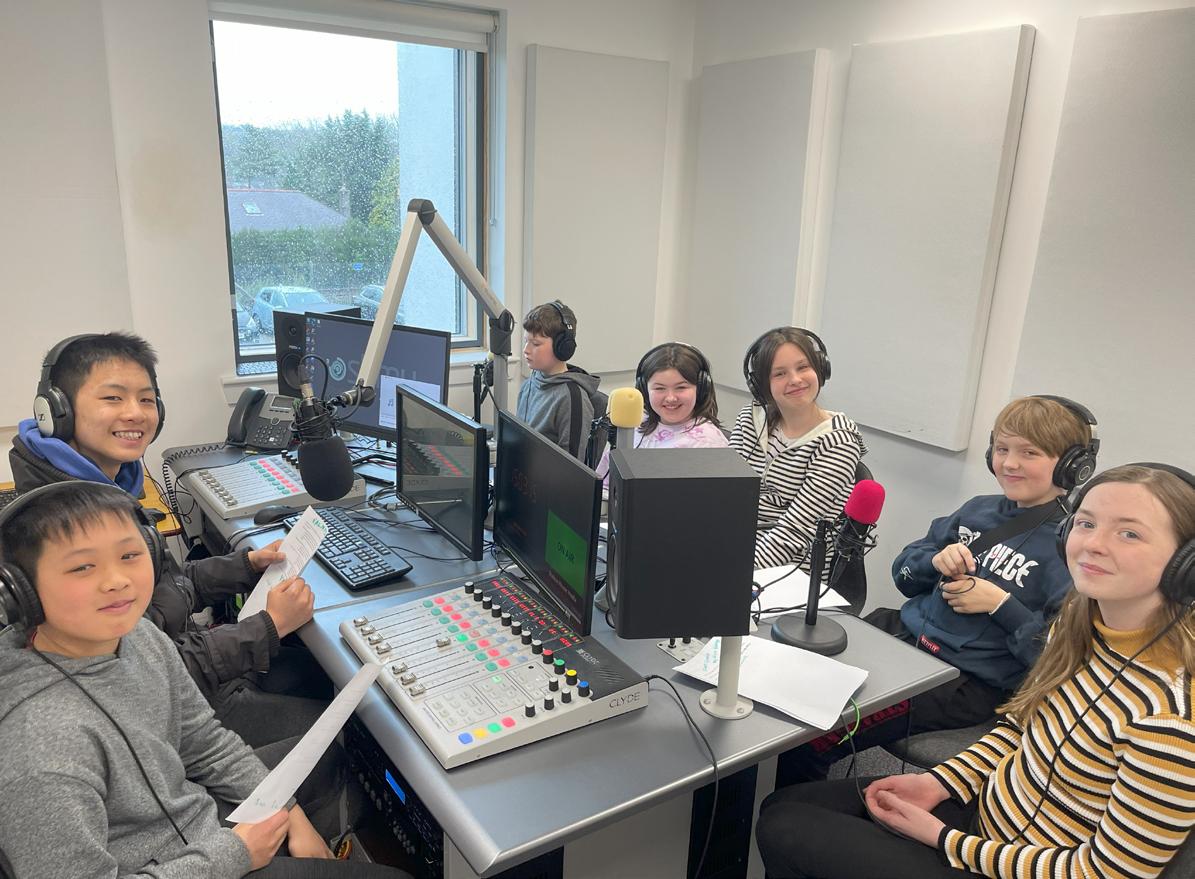
The budget for our programme was spent in line with the projected budget as outlined in our grant agreement, with no over or underspends during the first 2 years of the CashBack NorthEast programme.
Training Academy - Operational Staff Costs
Youth Media - Operational Staff Costs
Engage - Operational Staff Costs
Audio/IT Technician (across all programmes)
Recruitment costs
Staffing Project delivery costs sub-total
Training Academy - Running Costs & Expenses
Youth Media - Running Costs & Expenses
Engage - Running Costs & Expenses
Non-Staffing Project delivery costs sub-total
Contribution towards equipment across all programmes
Capital expenditure sub-total
Management and Marketing Fee
Management and Marketing sub-total
Total Expenditure
Most of our CashBack NorthEast programmes take place in Aberdeen City, however there are a number of beneficiaries that live in Aberdeenshire.
• Youth Media focuses on supporting young people in the regeneration areas of Aberdeen City.
• Training Academy focuses on supporting Senior Phase pupils in Aberdeen schools, but also provides some one-to-one support to young people in both local authorities.
• Engage supports young people in the community who are justice experienced and may be resident in Aberdeen or Aberdeenshire. Yr2 Expenditure £ Spend to date £
Analysis of spend across both local authorities


















“I just wanted a place to go and something to do to help with my mental health – and get some filming skills. And I did get all of those. I really appreciated the skill sessions too, they helped me feel less alone when applying for jobs.”
Engage participant


In September 2021, the Scottish Government published its Programme for Government, which, alongside the Bute House Agreement, outlined its priorities for the current parliamentary term. These remain focused on tackling the most urgent challenges facing communities across Scotland. The CashBack for Communities programme is designed to support the delivery of National Outcomes as part of Scotland’s National Performance Framework. In this context, CashBack NorthEast contributes meaningfully to the following four Scottish Government policy areas:
We continue to make intentional and strategic decisions to reduce our environmental impact - both organisationally and across all programmes. In line with a realistic, inclusive climate action approach, we regularly engage with Adaptation Scotland and NESCAN to strengthen our plans for climate resilience and a just transition to net zero.
We have developed a strategic Net Zero Plan for our organisation, and our recently redeveloped headquarters reflects this commitment - featuring solar panels and energy-efficient heating systems. Further refurbishment of the original section of our building (dating back to the 1850’s) began in March 2025, supported by funding from the UK Shared Prosperity Fund and the Scottish Government’s Place Based Investment Fund. A further application has been submitted to the Community and Renewable Energy Scheme (CARES) to support the installation of low carbon or renewable energy systems. In addition, we have invested in both a solar farm and a wind farm, which will significantly offset our carbon footprint. Our recently published Strategic Plan 2025–2030 embeds environmental action as one of eight organisational priorities - ‘Climate and Nature’ - further strengthening our commitment to sustainability and positioning climate engagement at the heart of our work.
Environmental sustainability has also been a key area of focus for our Youth Social Action work. Climate Emergency emerged early on as a priority theme identified by young people. Since then, we have continued to support them to explore and amplify environmental
messages through creative media campaigns - making climate issues accessible and engaging, and empowering communities to take meaningful action.
shmu is committed to Fair Work principles and continues to embed the Fair Work First approach across the organisation.
We promote open and constructive dialogue between staff and management. In 2024, we developed a new Workplace Representatives model to ensure meaningful staff participation in decision-making. A self-selecting working group of 10 staff members explored core elements of the model, including selection, reporting, and organisational culture. A consultation paper was circulated to the full team, and we are now inviting staff to express interest in becoming Workplace Representatives. The model will be reviewed as it develops.
Regular staff and project meetings, along with our biannual Development Days, provide opportunities for staff and trustees to reflect on progress and help shape the organisation’s future. We continue to use our five-year Strategic Plan as a framework for inclusive planning, incorporating annual visioning sessions that include staff, volunteers, trustees, and trainees.
Opportunity
We are committed to creating an inclusive, diverse workplace. We support job-sharing, part-time and flexible working, compressed and annualised hours, and remote working. We actively recruit through employability schemes and offer volunteering and placement opportunities. We are also exploring the development of a regional Workforce Development programme in partnership with local colleges and universities.
Security
We do not use zero-hour contracts. Our core team consists of salaried staff, supported by freelance tutors paid at industry rates. As an accredited Real Living Wage employer, all staff are paid above the minimum threshold. We operate on an incremental salary plan, with additional incremental leave for each staff employee who stay with
the organisation longer-term. We have a sick pay policy and encourage flexible working and support staff to maintain a healthy work/life balance.
Our Stakeholder Pension Scheme was introduced ahead of statutory deadlines and we continue to increase employer contributions - with the ambition of becoming a Living Pension Employer.
Fulfilment
Professional development is central to our strategic planning. Through appraisals and supervision, staff and managers jointly identify training needs and opportunities for growth. CPD is encouraged at all levels of the organisation.
In 2024, we launched a comprehensive, anonymous staff satisfaction survey, with results shared across the team and used to create a collaborative action plan. We have also continued to implement our Mental Health & Wellbeing Strategy, supported by an Occupational Health provider, and have trained staff members as voluntary Wellbeing Champions.
United Nations Convention on the Rights of the Child (UNCRC)
Although shmu already had strong policies and practices in place to uphold children’s rights, the full Children’s Rights and Wellbeing Impact Assessment (CRWIA) carried out during Phase 5 of the CashBack programme allowed us to rigorously review and strengthen our approach.
With over 20 years of experience as a leading youth work provider, our staff are trained in child protection and welfare, and a dedicated Child Protection Officer leads on UNCRC delivery. Our CRWIA is actively used to shape all aspects of our CashBack NorthEast programmeensuring that activities are inclusive, child-centred, and contribute positively to young people’s wellbeing and development.
The CRWIA can be accessed on our website: www.shmu. org.uk/policies-CRWIA
We also link directly to the Scottish Government’s 20-minute UNCRC training tool, which has been
completed by all project staff. Our approach is mandatory for all staff and ensures that children’s rights are consistently protected and promoted across our work.
Addressing and preventing poverty sits at the heart of shmu’s mission and outcomes. We recognise the role community organisations must play in delivering long-term change and are committed to supporting families in some of Aberdeen’s most disadvantaged communities.
Part A: Providing the opportunities and integrated support parents need to enter, sustain and progress in work
Employability is one of shmu’s key organisational pillars, with our employability programmes embedded within the No One Left Behind Framework in both Aberdeen City and Aberdeenshire. Our Training Academy supports young people at risk of leaving school without a positive destination, while our Engage programme works with justice-experienced young people, many of whom are parents. Both projects offer tailored support into employment or further training.
Part B: Maximising the support available for families to live dignified lives and meet their basic needs
All shmu projects include wraparound, person-centred support. We help young people and their families navigate challenges around housing, benefits, and the cost of living. Our approach prioritises dignity, accessibility, and timely intervention - ensuring families can access the support they need when they need it.
Part C: Supporting the next generation to thrive
Our youth services are rooted in empowerment, learning, and long-term progression. Projects such as Youth Media and Training Academy equip young people with the confidence, skills, and experience to succeed - improving their life chances and breaking intergenerational cycles of poverty. Engage works specifically with young people in or at risk of offending, using media and relationship-based support to help them build new futures for themselves and their families.















"All pupils have improved on resilience - they needed to problem solve and get the task done - having a great product to show at the end really raised morale in the group."


Teacher,
Portlethen Academy



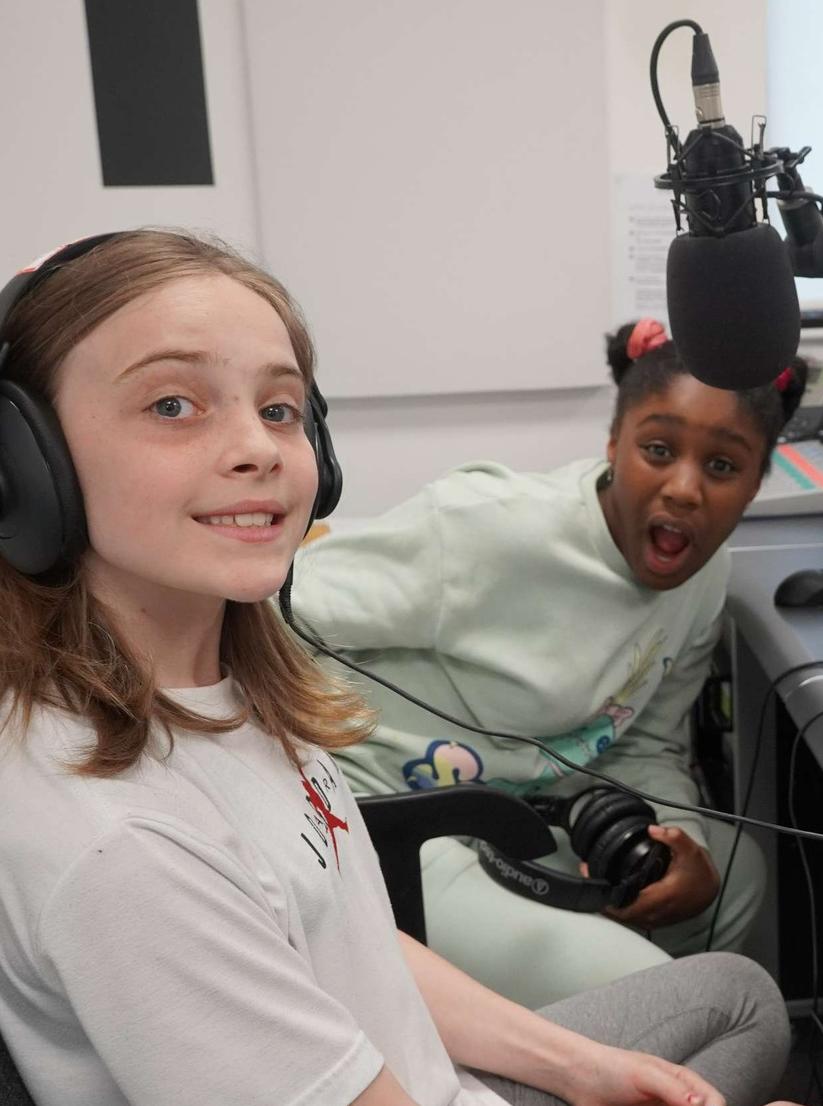

"Two pupils who have attended the course, have been unable to engage and sustain attendance for any other supports that have been identified for them. Their time at shmu has been the only thing that they have engaged with for a period of time.”
Teacher, Northfield
As we enter the final year of our CashBack NorthEast programme, our focus is on sustaining momentum, deepening engagement, and building on the strong foundations established in Years 1 and 2. Our Year 3 priorities are shaped by learning from delivery, feedback from young people and partners, and the evolving needs of the communities we serve. Across Youth Media, Training Academy, and Engage, we will continue to provide inclusive, person-centred opportunities that promote wellbeing, progression, and long-term positive outcomes
Youth Media
In Year 3, we will continue to support participants to achieve their Dynamic Youth Awards, with at least 13 young people already on track to complete their awards in Quarter 1. Our Young Leaders will also be supported to work towards Youth Achievement Awards, recognising their leadership, planning, and mentoring as they deliver positive, engaging experiences for their peers.
Youth Media will lead a series of activities to support the P7–S1 transition, delivering interactive and inclusive programmes over the Easter and Summer holidays. By building connections between new participants and our existing group, we aim to foster meaningful engagement and smooth transitions into secondary school.
We will build on the success of our Year 2 taster activities across target communities, strengthening recruitment pathways and deepening local partnerships. During the summer, we will also support young people progressing into further or higher education or employment - ensuring continued engagement and access to advice and mentoring as they take their next steps.
Our Young Leaders model will continue to evolve, providing structured leadership opportunities and extended engagement for older participants, with an emphasis on skills development, peer support, and progression.
Training Academy
Our immediate priority is to confirm school cohorts for the next academic year. Early interest has been strong at
both St Machar and Northfield Academies, and we will prioritise these groups. We have also been approached by Portlethen Academy in Aberdeenshire and will explore options for delivery there in Quarter 1.
Across the year, we will support pupils to achieve accreditation through the SCQF Level 3 Personal Development Award - a more accessible and experiential qualification than the Level 4 Employability Award previously used. This approach better meets the needs of our learners and reflects our commitment to inclusive, practical learning.
We will also follow up with previous pupils and partner schools to confirm destinations, record progression outcomes, and offer further support to those who have not yet moved on to a positive destination.
Our Year 3 focus for Engage will be to deepen our work, with an emphasis on building and sustaining partnerships that support young people with justice experience. We will continue to work closely with Justice Social Work, unpaid work teams, alcohol and drug services, Police Scotland, and third sector partners to ensure joined-up, traumainformed support.
A key opportunity this year is our engagement with partners delivering Upside, Scotland’s new national voluntary throughcare service (launched April 2025). This partnership will allow us to better support young people transitioning from custody into the community, offering creative and purposeful engagement to aid reintegration.
Our delivery approach will remain focused on meeting young people where they are - both physically and emotionally. By offering activity in familiar and supportive environments, we aim to build trust and support sustained engagement. We will continue to collaborate with community youth groups in areas experiencing high levels of antisocial behaviour, offering media-based activity that promotes positive behaviour change, skill-building, and personal development.















“Taking part in the Engage course reduced my isolation and loneliness, and improved my mental health and wellbeing, confidence, self-esteem, resilience, creative skills and core skills all in one go!”

Engage participant




